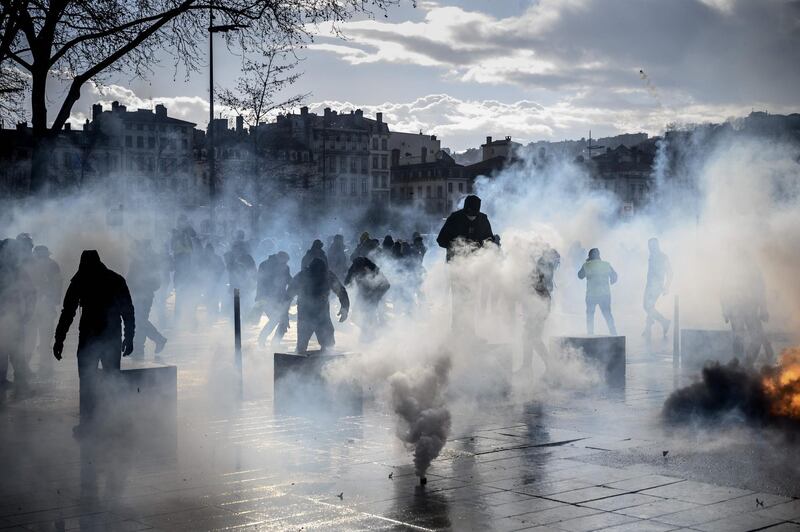Trust in UAE institutions rose for a second successive year as the public remains wary of fake news spread by unverified sources.
The government gained a trust score of 82 per cent, second only to China, according to an extensive survey by communications firm Edelman Middle East.
According to the report, confidence among UAE residents also rose in business, the media and NGOs, making the country's population the fourth most trusting out of 26 nations analysed.
Internationally, the gulf in levels of trust in institutions between social classes also increased to record levels.
The survey found wealthy, university-educated members of the population were on average 16 percentage points more trusting than the wider public.
"If you think of the 15 economies in the survey found to be the most distrusting, they are by and large all constitutional democracies that have been going for 100 or 200 years," said Jonny Mulligan, the Edelman director of capital markets and advisory.
"Today, their exchange between state, people and institutions doesn't seem to be working, but the states where it is working are the younger countries in development.
“If you look at the UAE, it’s a young country – there’s a different social contract.
“It has a very strong sense of direction in terms of where it’s going and what the aspiration of the state is.”
In the annual survey first carried out in 2000, the Edelman Trust Barometer this year had responses from 33,000 people worldwide.
Controversies such as the Yellow Vests in France and Brexit were put forward as signs of a growing sense of economic injustice in the West.
Eight in 10 respondents said they were either unsure the system was working for them or believed it was failing them altogether.
The figure was 86 per cent for Japan, Germany and the UK, and 92 per cent in France.
By comparison, optimism in countries such as the UAE, India and China was most likely driven by a sense they were performing well economically, according to Edelman.
Trust in media jumped by 10 percentage points in a year among the university-educated public in the Emirates, a development that was credited to a growing awareness of fake news driving people back to trusted media brands.
Trust in government, meanwhile, rose by 5 per cent, to 82 per cent, the highest figure since 2015, while, trust in business rose by 6 per cent, to 74 per cent, and trust in NGOs rose by 7 per cent, to 68 per cent.
The data also revealed a substantial gap in attitudes between men and women in the UAE. For example, men recorded a trust rating of 65 per cent in the media, while women's trust in media was 49 per cent.
Significantly, across all four sectors, the research found that men in the UAE were 10 percentage points more trusting than women – twice the global average.
"We see among the informed public, high levels of trust and, under the mass population, high levels of distrust," said Jordan Rittenberry, managing director of Edelman South Africa.
"The pervasiveness of social media, the democratisation of data, is having an impact on consumers and their beliefs.
“The biggest issues we see [in the West] is a sense of injustice and a real desire for change. We see this underlying, bubbling, distrust and a concern and belief that the system isn’t working for them.”







